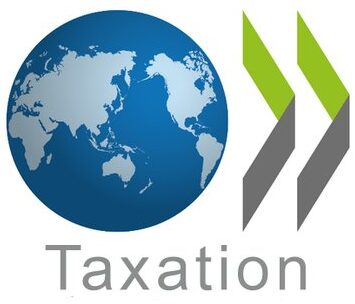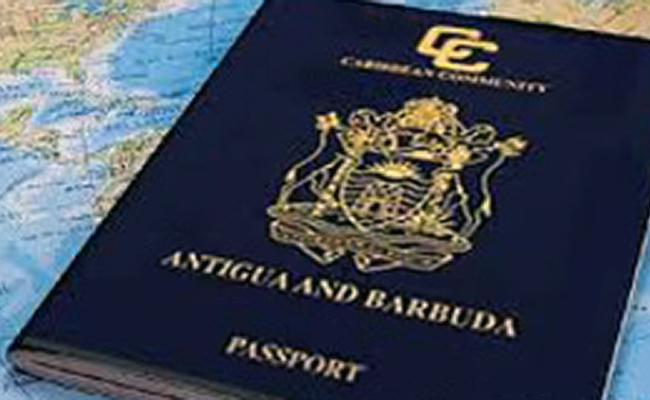Principal taxes
Corporation tax
All enterprises carrying on business operations within Antigua
are must file a corporate income tax return within 3 months of
the fiscal year end, which includes audited financial
statements.
Corporation tax is currently imposed at a rate of 25% on all
companies except financial institutions registered under the
Banking Act. If a financial institution maintains its residential
mortgage rates at or below 7% throughout the taxation year
or offers to small businesses loans at a lending rate at least
half a percentage point below the prime lending rate
otherwise fixed for that institution, for which the security
requirements are substantially less restrictive that those
otherwise required for that financial institution, then it shall
pay income tax at a rate of 22.5%.
Effective 2019, in addition to the corporation tax currently
imposed at a rate of 25% on all companies, an additional 10%
tax will be imposed on the taxable income of
telecommunications companies, banks, insurance companies
and the country’s sole petrol distribution company, West
Indies Oil Company.
Advance tax is payable in monthly installments and is
ordinarily based on the tax chargeable and assessed in the
previous fiscal year.
The balance of tax due after deduction of advance tax, as
notified in the assessment, is payable at the time of
submitting the annual corporate tax return which must not be
later than three months after the financial year end or one
month of service of a final assessment.
Withholding taxes (WHT)
Payments or amounts incurred in relation to non-residents
are generally taxed at 25% or 15% in relation to CARICOM
residents. Dividends paid to CARICOM residents attract a
rate of 0%.
Where a non-resident lends money at arm’s length for the
purpose of promoting industrial, commercial, scientific,
housing, or other development, the rate of withholding tax
is 10%. Prior approval must be sought from the
Commissioner of Inland Revenue and it is recommended
that Cabinet approval also be obtained.
Tax administration – WHT
WHT withheld from amounts paid or incurred in relation to
non-resident persons in accordance with the provisions of
the Income Tax Act in any given month, must be submitted
to the IRD using the WO2 Withholding Tax – Monthly
Declaration form by the 15th of the following month. The
WO2 form must be accompanied by a Certificate of
Deduction of Withholding Tax for each non-resident person
in relation to whom WHT is being paid.
If there is no WHT to pay in a particular month, then there
is no requirement to file a withholding tax declaration form.
Failure to file the WHT return by the due date will incur a
5% penalty for late filing (minimum of EC$500). A person
who fails to pay the requisite tax within fourteen days of the
due date is liable to a late payment penalty of 10% of the
amount of tax due but not paid plus interest of 1% per
month on unpaid taxes in default.
Foreign corporations
A foreign corporation (i.e. incorporated under the laws of a
country other than Antigua & Barbuda) may engage in
trade or business in Antigua as a branch of that foreign
corporation or as a separate corporation or subsidiary.
Resident foreign corporations are taxed in Antigua on
income derived in Antigua on the same basis as that of a
locally registered corporation.
Recharges of expenses from Head Office to the branch will
be subject to withholding tax at a rate of 25% (or 15% to
CARICOM recipients). The recharges must be justified and
cannot simply be based on a percentage allocation.
Capital Gains
Capital gains are not subject to tax.
Foreign sourced income
An Antiguan corporation is taxed on foreign branch income as
earned and on foreign dividends as received. Double taxation
is avoided by means of foreign tax credits where active tax
treaties exist and through deduction of foreign income taxes in
other cases. There is also relief from Commonwealth taxes.
Individual taxation
Unincorporated Business Tax (UBT)
The Unincorporated Business Tax Act 2016 was passed on
June 23, 2016 and took effect from July 1, 2016.
Indirect Taxes “Value Added Tax”
Antigua and Barbuda Sales Tax (ABST) which is a value
added tax was introduced on January 29, 2007 and is
applicable to a wide range of goods and services. The
standard rate is 15%; hotel accommodation carries a rate of
13%.
The threshold for registration is EC$300,000 in taxable activity
per 12-month period.
A number of services including financial services, local
transportation, sale of residential land, education, long term
accommodation (>45 days), medical and veterinary services,
are exempt. International transportation service is zero-rated.
Certain supplies are zero rated, including exports, basic food
items, water, electricity for residential use, sale of new
residential property and fuel. Intergroup transactions are
taxable.
Double tax agreements
Antigua has negotiated comprehensive Double Taxation
Treaties with the following countries:
- the CARICOM Member States (which include: Trinidad &
Tobago, Dominica, Jamaica, Barbados, St. Kitts & Nevis,
Belize, St. Lucia, Grenada, Guyana and St. Vincent and
the Grenadines) - United Kingdom
All of the treaties make provision for the relief of double
taxation and provide for reduced rates of withholding taxes on
certain flows of income. The manner and method of credit for
foreign taxes are dealt with in the treaties.
Individual Taxation
All individuals in Antigua and Barbuda who operate an
unincorporated business will be subject to the Unincorporated
Business Tax (UBT) on chargeable income accruing in or
derived from Antigua and Barbuda or elsewhere whether or
not the income was received in Antigua and Barbuda in
respect of:
a) self-employed income;
b) other income to include partnership income; and
c) income from a deemed unincorporated business.
Employment income, capital gains, dividends and interest
income on savings are exempted under the UBT.
There is no Personal Income Tax and individuals are not
taxed on their worldwide income.
Before a foreign non-resident may be employed in Antigua a
work permit must be obtained from the Ministry of Labour.
Such permits are usually issued after the Ministry is satisfied
that no national of Antigua exists with the appropriate
qualifications/experience. Employers wishing to appoint a
foreign non-resident may be required to advertise the post
prior to applying to the Ministry for permission to employ a
foreign non-resident. The work permit, if granted, will usually
be for a period of up to one year and is renewable.
Employees are subject to the following statutory payroll
deductions:
- Social security:
5.50% of chargeable income up to $6,500. - Medical benefits:
3.50% of chargeable income - education levy:
On chargeable income between EC$6,500 to
EC$60,000/year—2.5% deduction; on chargeable income
for amounts in excess of EC$60,000/year—5% deduction
International (‘Offshore’) Business Sector
International Business Corporations (IBCs) include both
licensed and non-licensed corporations. Licensed institutions
are limited to international banks, trust, insurance and
interactive gaming and wagering companies.
An IBC is exempt from the payment of corporate income tax
for a period of 50 years.
Any corporation licensed under the IBC Act is required to
maintain a physical presence in Antigua & Barbuda.
The formation of an IBC must be done by a local resident
agent, such as an accountant, attorney or trust company.
Formation can be completed in as little as 24 hours.
The resident agent must submit the following to the relevant
authority:
• request for a name approval which should reflect the
corporate purpose of the company.
• the Articles of Incorporation
• the authorized number of shares and directors
• a restriction to corporate purpose clause
• the signature of the incorporator





